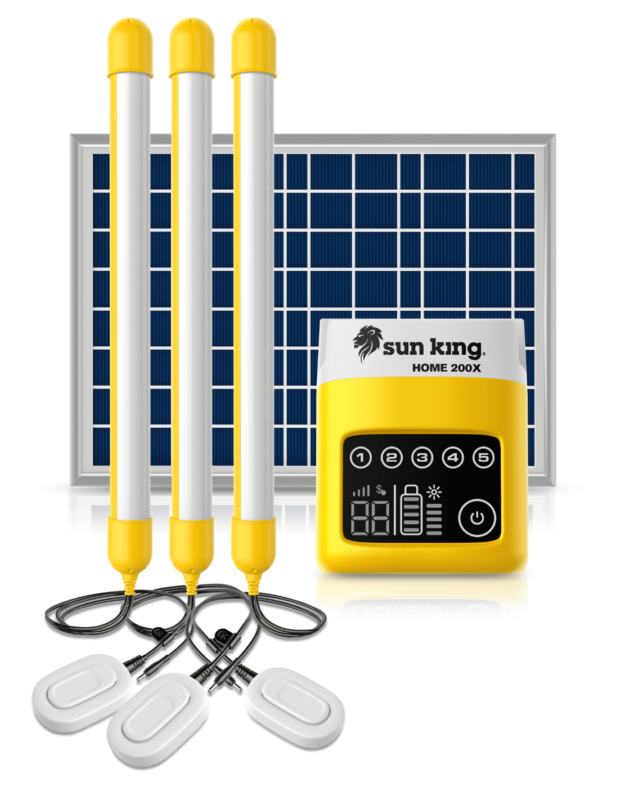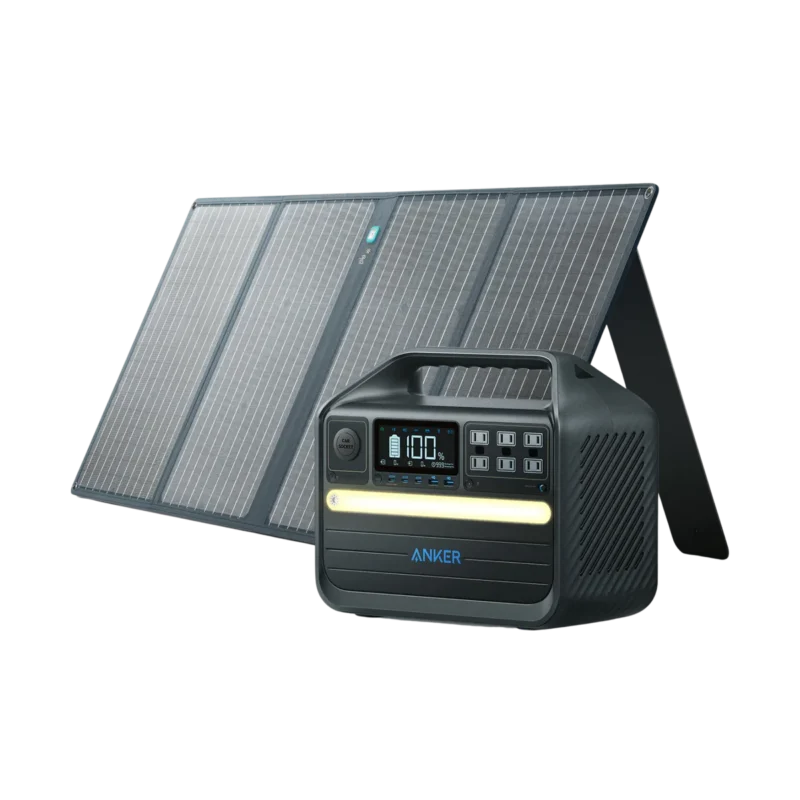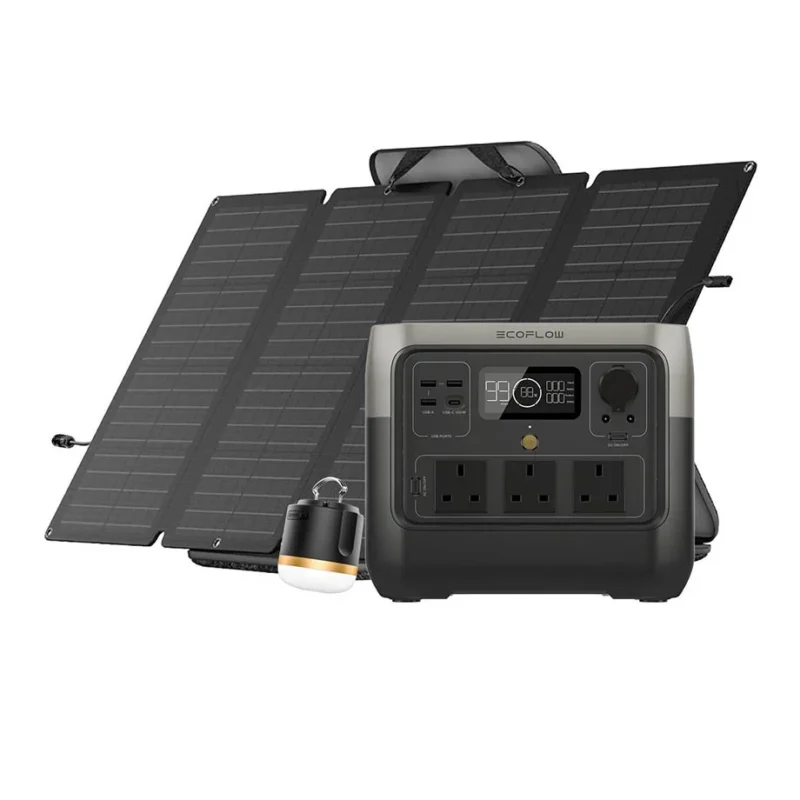Solar Lighting System Kit in Kenya

Introduction
Having a solar lighting system Kit has become popular in Kenya. Long ago having one was considered expensive, something a common mwananchi couldn’t afford, and we used to depend on candles, lantern lamps, and torches during power outages. However, that narrative is seen to have changed, as we see more brands being introduced to the Kenyan Market with affordable solutions. This article explains more about Solar Lighting systems, the advantages of having one Factor to consider when choosing a solar lighting system kit, and some of the best Solar lighting system kits in Kenya.
Solar Lighting System Kit
What does a simple Solar Lighting System Kit Contain? Let’s first start by understanding what we mean by Solar Lighting System Kit. This is a set of components that use solar energy to provide lighting. A simple solar lighting system kit usually consists of several components that work together to harness solar energy and convert it into electricity for lighting purposes. While the exact contents may vary depending on the manufacturer and specific model, here are the most common components you can expect to find in almost all brands:
- Solar Panels- These are the primary components of any solar lighting kit. Solar panels capture sunlight and convert it into electrical energy. They come in various sizes and power capacities, depending on the intended use.
- Bulbs- Solar lighting kits usually include LED bulbs that are energy-efficient and long-lasting. These bulbs provide bright and reliable lighting while consuming minimal power. The bulbs will help you have light across various rooms.
- Battery- A rechargeable battery is an essential part of a solar lighting system kit. It stores the electricity generated by the solar panels during the day, allowing you to use the lights even when the sun is not shining. You will find batteries that are lithium-ion or Lead-Acid batteries.
- Charge Controller- The charge controller regulates the flow of electricity from the solar panels to the battery. It prevents overcharging and ensures optimal performance and longevity of the battery. It’s also built into the housing with the battery.
- USB Chargers– Some solar lighting kits may also include USB ports or adapters, allowing you to charge small electronic devices such as mobile phones or tablets using solar-generated electricity.
It’s important to note that while these are the basic components, more advanced solar lighting kits may include additional features such as motion sensors, remote controls, or even the ability to power larger appliances.
Another important component that is often included in a simple solar lighting system kit is the mounting hardware. This hardware is used to securely install the solar panels in a location where they can receive maximum sunlight exposure. It typically includes items such as brackets, screws, and other necessary accessories.
In addition to the mounting hardware, some solar lighting kits may also come with a user manual or installation guide. This guide provides step-by-step instructions on how to set up the system, connect the components, and troubleshoot any potential issues.
Furthermore, many solar lighting kits are designed to be portable and easy to transport. They may come with a carrying case or bag, allowing you to take them with you on camping trips, outdoor events, or during emergencies.
Lastly, some solar lighting kits may include a warranty or guarantee from the manufacturer. This warranty ensures that the components are free from defects and will be replaced or repaired if necessary.
Overall, a simple solar lighting system kit contains all the necessary components to harness solar energy and provide reliable lighting. Whether you’re looking to illuminate your outdoor spaces, power small electronic devices, or have a backup lighting solution during power outages, a solar lighting kit can be a cost-effective and environmentally friendly option.
Factors to Consider When Choosing a Solar Lighting System Kit
When selecting a solar lighting system kit for your specific needs, there are several factors to consider. These factors will help you determine the most suitable kit that meets your requirements and ensures optimal performance. Here are some key considerations:
1. Power Requirements
Evaluate the amount of lighting you need and the power consumption of the bulbs. This will help you determine the size and capacity of the solar panels and battery required for your kit.
2. Size and capacity of the components.
The size of the solar panels will determine how much sunlight can be captured and converted into electricity. A larger solar panel will be able to generate more electricity, allowing for longer hours of lighting. Similarly, the capacity of the battery will determine how much electricity can be stored and used during periods of low sunlight. It is important to choose a kit with components that are suitable for the specific lighting needs of the intended space
3. Quality and Durability
Look for solar lighting kits made from high-quality materials that can withstand various weather conditions. Durability is crucial, especially if you plan to install the kit outdoors. Consider the type of housing, whether it is made of sturdy plastic or corrosion-resistant metal. Additionally, check if the solar panels are made with tempered glass to ensure they can withstand hail or other potential impacts.
4. Installation and Ease of Use
Consider the ease of installation and use. Some kits will require professional Installation while others will have easy DIY set up. Look for kits that come with clear instructions and all the necessary mounting hardware. Additionally, consider the flexibility of the kit in terms of adjustability and the ability to easily relocate it if needed.
5. Budget
Determine your budget and compare the prices of different solar lighting kits. It’s important to strike a balance between affordability and quality. Consider the long-term savings that solar lighting can provide in terms of reduced electricity bills and maintenance costs.
6. Warranty and Support
Check if the kit comes with a warranty and if the manufacturer provides reliable customer support. A warranty ensures that you are protected against any defects or malfunctions, and reliable customer support can assist you in case of any issues or concerns. Additionally, look for kits that have a strong track record and positive customer reviews to ensure that you are investing in a reputable brand.
7. Additional Features
Consider any additional features that may be important for your specific needs. Some solar lighting kits come with motion sensors or remote controls, allowing you to customize the lighting settings and enhance security. Others may have the ability to connect to smart home systems for seamless integration.
By carefully considering these factors, you can make an informed decision and choose a solar lighting system kit that best suits your specific requirements. Remember to also consult with a solar lighting professional who can provide expert advice and guidance based on your unique situation.
Why Use a Solar Lighting System Kit?
Using a solar lighting system kit offers numerous benefits, making it a smart choice for individuals, communities, and even governments. There are several compelling reasons why using a solar lighting system kit is a wise choice, especially in Kenya. Let’s explore some of the key advantages:
1. Cost Savings
Solar lighting kits offer significant cost savings in the long run. Once installed, they rely on free and abundant solar energy, eliminating the need to pay for electricity bills. This is particularly beneficial for rural areas or off-grid communities where accessing electricity from the national grid may be challenging or expensive.
2. Environmental Friendliness
Solar lighting is a clean and renewable energy source that produces zero greenhouse gas emissions. By using solar energy, you contribute to reducing your carbon footprint and mitigating climate change.
3. Reliability and Independence
Solar lighting kits provide a reliable lighting source even during power outages or in remote areas without access to the national grid. They offer independence from unreliable electricity supply and ensure uninterrupted lighting.
4. Easy Installation and Maintenance
Solar lighting kits are easily installed and require minimal maintenance. Once installed, they operate autonomously, requiring only occasional cleaning of the solar panels to ensure optimal performance.
5. Enhanced Safety
Solar lighting eliminates the risks associated with kerosene lamps or candles, which pose fire hazards and health risks due to indoor air pollution. Solar-powered lights provide a safe and healthy lighting alternative.
6. Community Development
In addition to the individual benefits, solar lighting kits also contribute to the overall development of communities. By providing access to reliable and sustainable lighting, these kits enable educational institutions to extend their learning hours, therefore allowing students to study and do homework even after sunset. Furthermore, solar lighting can enhance security in communities by illuminating streets and public spaces, reducing the risk of crime.
Types of Solar Lighting System Kits in Kenya
Some of the types of solar lighting systems include
1. Kamisafe rechargeable solar lighting system

2. Premier 3W Solar Home Lighting System- PM8165

3. DAT Solar Lighting Kit

4. Sunking Solar Lighting Kit

5. D.Light Solar Lighting System

6. Anker Solar Lighting System

7. EcoFlow Solar Lighting System

Conclusion
Whether you are looking to illuminate your home, school, or community, a solar lighting system kit offers numerous benefits as mentioned. By understanding what a simple solar kit typically contains and considering factors such as size, durability, and quality, individuals and communities can make an informed choice when selecting a solar lighting system kit. With the growing demand for reliable and sustainable lighting solutions, it is clear that solar lighting kits are here to stay and will continue to play a vital role in Kenya’s journey towards a greener future.
